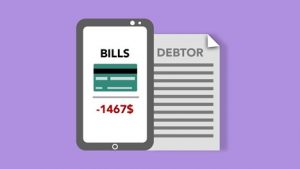During the estate planning process, Texans will try and resolve as many issues as possible. However, sometimes these problems fall through the cracks. While most individuals try to ensure they have no debts when they die—at least to the best of their ability—sometimes this is unavoidable. When this occurs, people may have questions about whether the debt is still owed and who pays the debt. Because this can be a very stressful situation, below are answers to some of the most common questions and how to handle each situation.
Does Your Debt Disappear After You Die in Texas?
Unfortunately, if a person passes away with debt, this debt is not automatically erased. Generally, your estate—through the person you name as executor of the estate—is required to pay off your debt. The process itself is called probate. Probate is accomplished through using the assets listed in the estate plan, such as cars, homes, bank accounts, and other assets, to settle the debt. In doing so, a judge will determine the estate’s total value, pay down the debt, and distribute the remaining estate assets to the heirs. The heirs will not be paid until the debt is handled.
 Houston Estate Planning and Elder Law Attorney Blog
Houston Estate Planning and Elder Law Attorney Blog



